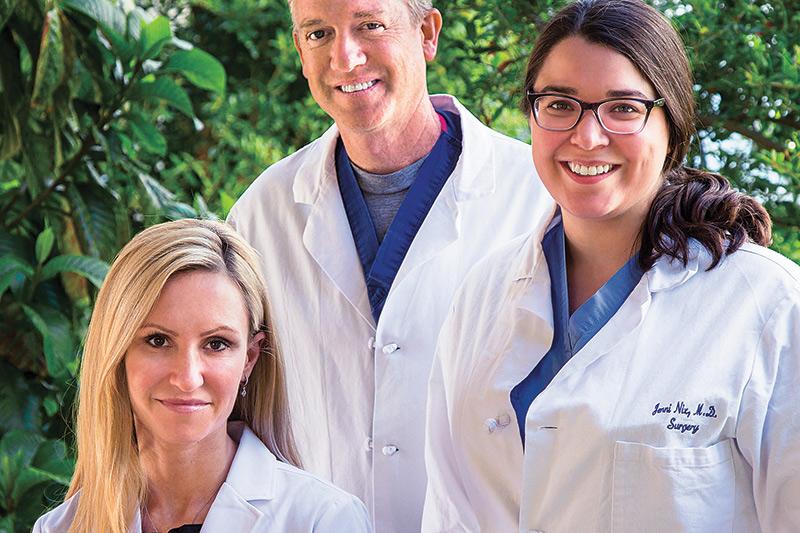Disaster-tested doctors
In Dr. Charity Dean’s disaster-training exercises, first responders imagine multiple mass events happening at once, including highly unlikely events.
In January, Dean, public health officer for Santa Barbara County, California, witnessed such a scenario unfolding in real life, as a massive mudslide struck Montecito, following a huge wildfire and multiple influenza outbreaks in healthcare facilities. Area hospitals and nursing facilities were full, and Santa Barbara was marooned, as mud had washed out U.S. Highway 101. County officials were ready, with rescue crews staged around the county.
“Public health officer is a 24/7 job. My role is to anticipate, prevent and mitigate any threats to the public’s health,” said Dean, a 2005 graduate of the School of Medicine and School of Public Health and Tropical Medicine.
She also praised the dedication of the area’s healthcare workers, who “went to heroic lengths to show up for work.”
Among those on duty were 2002 School of Medicine graduate Dr. Brett Wilson, director of emergency medicine at Santa Barbara Cottage Hospital and a former Charity Hospital resident during Hurricane Katrina, and Dr. Jenni Nix, a general-surgery resident at Cottage and a 2015 graduate of the School of Medicine and School of Public Health and Tropical Medicine. Dean and Wilson already had a working relationship, forged by their Tulane ties, problem solving behind the scenes.
“Without my time at Tulane and in residency at Charity, this would have been a totally different experience for me,” Wilson said. “The experience I had with Katrina was a huge factor as to why I was able to help my department run smoothly during this event.”
Training at Tulane “did help me learn how to interact with people who are going through a huge emotional stress,” added Nix.
The first day, the hospital treated a couple dozen of the nearly 1,000 people who were eventually rescued from the mud, suffering from hypothermia, blunt trauma injuries and chemical or raw-sewage exposure. Injuries continued to pour into Cottage over the next days.
“There’s something unifying about both [of us] going to Tulane,” Dean said, adding that Wilson reliably communicated his experiences in real time. “It was comforting to know that Brett was in charge of the ER … so that our two organizations are in lock-step.”
Editor's note: This article appeared first in the June 2018 issue of Tulane magazine.

